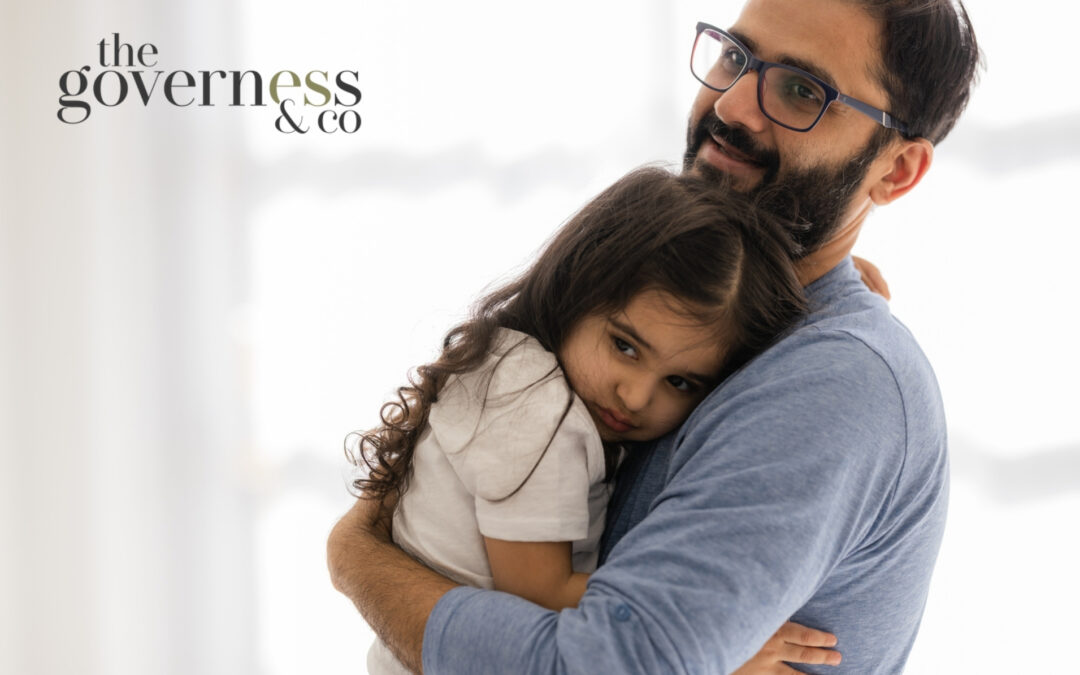Separation anxiety is a common and natural part of child development. It typically occurs in young children between the ages of 6 months and 3 years but can also affect older children. As parents, seeing your child distressed when you leave can be heart-wrenching. However, there are effective strategies to help ease their anxiety and make transitions smoother. Here at Governess & Co., we understand the challenges of separation anxiety and are here to offer expert advice to support you and your child.
Understanding Separation Anxiety
Separation anxiety is a sign of a healthy attachment between a child and their parent or caregiver. It demonstrates that your child feels secure with you and is unsure how to cope without your presence. While it’s natural, it can be challenging for both the child and the parent.
Tips for Easing Separation Anxiety
- Establish a Routine:
- Children thrive on routine. Predictable daily schedules provide a sense of security and help them understand what to expect. Try to keep a consistent routine for goodbyes and reunions.
- Practice Short Separations:
- Start with short separations and gradually increase the duration. This helps your child get used to the idea that you will always return.
- Create a Goodbye Ritual:
- Develop a special goodbye ritual that you do every time you leave. This could be a hug, a kiss, or a special phrase. Rituals provide comfort and a sense of consistency.
- Stay Calm and Conffident:
- Children can sense your emotions. If you appear anxious or guilty, it may reinforce their anxiety. Stay calm, confident, and positive during goodbyes.
- Provide Comfort Objects:
- Giving your child a comfort object, like a favorite toy or blanket, can provide them with a sense of security while you are away.
- Reassure Them:
- Reinforce the idea that you will return. Simple phrases like “Mommy will be back after your nap” can be reassuring.
- Quick Goodbyes:
- Long, drawn-out goodbyes can increase anxiety. Keep your farewells brief and upbeat.
- Engage the Caregiver:
- Make sure your child has a positive relationship with their caregiver. At Governess & Co., our nannies and governesses are trained to build trust and create a comforting environment for your child.
- Avoid Sneaking Away:
- While it might be tempting to slip away when your child is distracted, it can lead to more anxiety. Always say goodbye to reinforce trust.
- Read Books About Separation:
- There are many children’s books that address separation anxiety. Reading these together can help your child understand and cope with their feelings.
How Governess & Co. Can Help
At Governess & Co., we specialize in providing professional and compassionate care for your children. Our experienced nannies and governesses are trained to handle separation anxiety with empathy and skill. We work closely with parents to develop personalized strategies that cater to each child’s unique needs.
Our caregivers are adept at creating engaging and comforting environments that help ease the transition when parents leave. Whether it’s through fun activities, comforting routines, or just being a warm presence, our goal is to make sure your child feels secure and happy.
Separation anxiety is a natural part of growing up, but with patience and the right strategies, it can be managed effectively. By establishing routines, staying calm, and building trust, you can help your child navigate this challenging phase. At Governess & Co., we are committed to supporting you and your child every step of the way. For more advice or to learn about our services, please feel free to contact us.
Remember, the goal is to help your child feel secure and confident even when you’re not around. With time and consistent effort, separation anxiety can be greatly reduced, making goodbyes easier for both you and your child.

